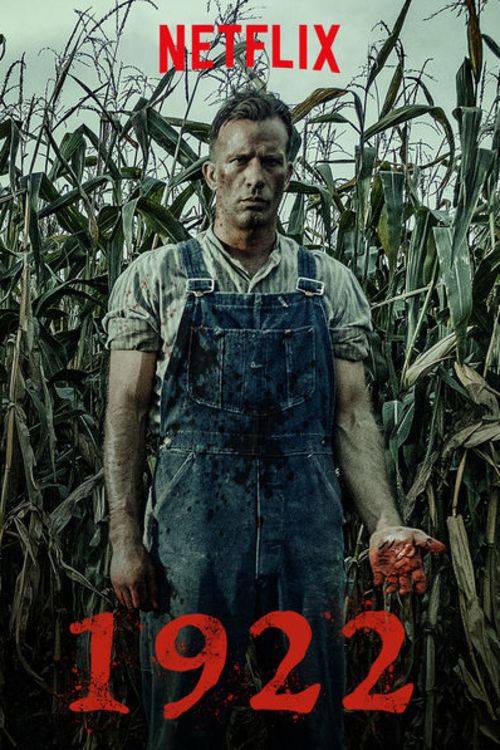Wilfred is content with his simple farming life, even more so after his wife Arlette (Molly Parker) inherits a further 100 acres adjacent to their property. She’s tired of the homestead, though, and is eager to sell the land, along with their own farm, and move to the big city of Omaha. When she gives Wilfred a “sell or I’ll divorce you” ultimatum, he hatches a plan and brings his 14-year-old son Henry (Dylan Schmid) along for the ride. Henry has started dating a comely young lady, you see, and Arlette declares that if Wilfred doesn’t sell, she’ll not only vamoose without him, she’ll take Henry with her, separating him from his young love.
It doesn’t take much arm-twisting for Wilfred to get Henry to be an accomplice in his plan to bump off Arlette and dump her in their abandoned well. But, ah, the best-laid plans of mice and men.
Wilfred seems to check off every box in his scheming, inventing a plausible cover story for his wife’s “departure”, burying a packed suitcase with her to make it truly seem like she just up and left, and even sacrificing one of his prize cows to justify filling in the old well. When the sheriff comes knocking, Wilfred and Henry have all their ducks in a row, and the plot seems to go off without a hitch.
Until the rats show up.
The little critters have been feasting on the remains of both Arlette and the cow, and soon they make their way through the abandoned plumbing into the barn, where they—along with visions of his wife’s wandering, decayed corpse—torment Wilfred. And when Henry later elopes with his girlfriend, the old man is left to grapple with the guilt (and the rats) alone.
Adapted and directed by Zak Hilditch (These Final Hours), 1922 is full of disturbing, haunting images, and each is infinitely more effective than traditional horror-trope jump scares, which Hilditch thankfully avoids. As for the script itself, Hilditch makes generous use of King’s original hayseed-twang writing in 1922 and even comes up with some of his own, giving the film an authentic backwoods, god-fearin’ feel.
The movie is as dark and black-hearted as they come, and it’s made even more so by Jane’s top-rate, menacing performance. With his snarling drawl, dead eyes and weathered skin, he exudes evil, but his calm plays far more sinister than a ranting madman ever could. Wilfred is in control, even though the Conniving Man, as he calls the devil on his shoulder, has taken over.
1922 may not be as complex (or high-budget) as September’s big-screen version of King’s It was, but it’s in the same league as Gerald’s Game (also from Netflix, a few weeks back). And, as with much of King’s oeuvre, it’s a damn fine story, guaranteed to make it a little harder for those bedtime cozies to settle in.
Rating
4/5 stars

It would be easy for even the most ardent Stephen King fan to start crying uncle (and no, not crying “Uncle Stevie”, as his Constant Readers do). In just the past few months…well—we all know the litany of King things to hit theaters, bookstores, and streaming services recently. The man, after all, puts the “pro” in “prolific”.
Now we get Netflix’s latest original film, 1922, based on King’s novella from his Full Dark, No Stars anthology. Centering on Nebraska farmer Wilfred James (Thomas Jane), 1922 is a dark, dark tale of murder and its repercussions. It’s a modern-day “Tell-Tale Heart”, and it’s as spooky, creepy, and downright unnerving as anything that’s sprung from King’s mind.